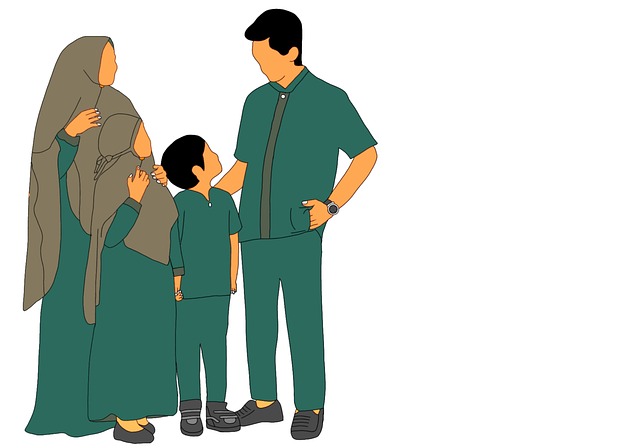Family law for grandparents is a crucial framework ensuring meaningful relationships between them and their grandchildren. While facing challenges like complex custody arrangements and parental rivalries, grandparents can navigate these hurdles by understanding their rights and actively engaging with legal professionals. Effective strategies include open communication, involvement in significant milestones, and proactive planning. Specialized family law lawyers guide clients through state-specific laws, advocating for visitation rights and best interests of the child. Case studies provide valuable insights, demonstrating successful approaches like securing substantial visitation or overcoming complex custody arrangements. Proactive measures such as early legal engagement, regular communication, documentation, and building support networks can help grandparents protect their relationships while navigating legal complexities.
Grandparent rights are a vital yet often misunderstood aspect of family law. In many cases, grandparents seek or maintain significant relationships with their grandchildren, facing challenges that can vary from legal restrictions to emotional barriers. This comprehensive guide navigates the complex landscape of grandparent rights, offering expert insights on navigating family law, strengthening bonds, and advocating for legal protections. From understanding the legal framework to exploring case studies and preventive measures, we empower grandparents to foster lasting connections with their beloved children’s offspring.
- Understanding Grandparent Rights: Legal Framework and Basics
- Common Challenges Faced by Grandparents in Family Law Cases
- Strategies for Strengthening Grandparent-Child Relationships
- Legal Options and Advocacy for Grandparent Rights
- Case Studies: Success Stories in Grandparent Rights Litigation
- Preventive Measures and Best Practices for Grandparents
Understanding Grandparent Rights: Legal Framework and Basics

In many jurisdictions, grandparent rights are recognized and protected under family law, offering a legal framework to ensure that grandparents maintain a meaningful relationship with their grandchildren. These rights can vary significantly depending on the region, but they generally revolve around visitation, custody, and access. It’s crucial for grandparents and parents alike to understand these legal aspects as they navigate potential challenges.
The basis of grandparent rights is often centered around the best interests of the child, balancing the need for stability and continuity in a child’s life with the importance of maintaining familial connections. Family law courts typically consider factors such as the quality of the grandparent-grandchild relationship, the circumstances surrounding the loss of contact, and any potential impact on the child’s well-being when making decisions regarding visitation or custody. Understanding these legal principles is key for grandparents seeking to protect their rights and for parents looking to ensure fair and positive interactions between their children and their grandparents.
Common Challenges Faced by Grandparents in Family Law Cases

Grandparents often face significant challenges when involved in family law cases, especially when seeking or defending their rights to access their grandchildren. Common issues include complex custody arrangements and intense rivalries between parents, which can complicate grandparent-grandchild relationships. These conflicts may arise from various factors, such as strained family dynamics, parental disagreements over parenting styles, or even legal disputes regarding guardianship.
In many cases, grandparents struggle to navigate the emotional turmoil and legal complexities that come with these battles. They might find themselves on the sidelines, feeling excluded from crucial decisions regarding their grandchildren’s upbringing. Family law for grandparents often involves mediating these conflicts, ensuring their involvement is respected while also prioritizing the best interests of the child.
Strategies for Strengthening Grandparent-Child Relationships

Maintaining and fostering strong grandparent-child relationships can be a complex task, especially in situations where there are legal challenges or disputes. Family law for grandparents plays a crucial role in ensuring their rights and opportunities to connect with their grandchildren. One effective strategy is open communication; regular conversations, even brief ones, can go a long way in keeping the bond strong. Grandparents should express their love and interest in the child’s life, creating an environment where the child feels comfortable sharing their experiences and thoughts.
Additionally, involving grandparents in significant milestones of the grandchild’s life, such as school events, birthdays, or family gatherings, helps them feel included and valued. This involvement can be facilitated through proactive planning and coordination with the parents. Building a routine that accommodates everyone’s schedules ensures consistent interaction, fostering a deeper connection. Remember, family law for grandparents is about navigating these challenges to preserve the unique bond between grandparent and grandchild.
Legal Options and Advocacy for Grandparent Rights

In many cases, grandparent rights challenges can be addressed through legal avenues, with family law serving as a powerful tool for advocacy. Grandparents seeking access or custody often turn to lawyers specialized in family law for grandparents, who can guide them through the complex legal system. These legal professionals help navigate state-specific laws and regulations pertaining to grandparental rights, ensuring that their clients’ interests are protected.
Legal options may include filing for visitation rights, temporary or permanent custody, or even challenging existing custody arrangements. Advocacy strategies might involve presenting evidence of a strong grandparent-grandchild relationship, demonstrating the child’s best interests, and addressing any legal barriers. The goal is to ensure that grandparents have the opportunity to play an active role in their grandchildren’s lives while adhering to the principles of family law.
Case Studies: Success Stories in Grandparent Rights Litigation

In the realm of family law for grandparents, case studies often serve as powerful tools to illuminate successful strategies and outcomes in grandparent rights challenges. These real-life narratives provide invaluable insights for both legal professionals and families navigating similar situations. For instance, consider a recent case where a set of grandparents successfully argued for regular visitation rights despite the parents’ initial resistance. Through thorough documentation of their involvement in the grandchild’s life prior to the child’s birth, as well as expert testimony highlighting the benefits of grandparent-grandchild bonding, the court acknowledged the significant role these relatives played and granted them substantial visitation privileges.
Another success story involves a grandparent who faced obstacles due to a complex custody arrangement. By presenting a compelling argument centered around the grandchild’s best interests, including the positive impact of regular contact with their extended family, they were able to secure more favorable terms. This particular case study underscores the importance of tailoring legal arguments to reflect the unique dynamics within each family, demonstrating that proactive and well-prepared cases can lead to successful outcomes in grandparent rights litigation.
Preventive Measures and Best Practices for Grandparents

Grandparents facing challenges in maintaining their rights often find themselves navigating complex legal landscapes. To mitigate these issues, proactive steps can be immensely beneficial. Engaging with family law professionals early on to understand one’s entitlements and obligations is crucial. This includes regular communication with all involved parties to ensure everyone is aware of the grandparent-child relationship and its significance.
Additionally, documenting interactions and significant milestones in the child’s life can serve as valuable evidence if any legal disputes arise. Building a strong support network within the family, fostering open dialogue, and seeking mediation or counseling when necessary can also help resolve conflicts amicably. These preventive measures, guided by knowledgeable family law experts, empower grandparents to protect their relationships with their grandchildren while navigating potential legal hurdles effectively.






